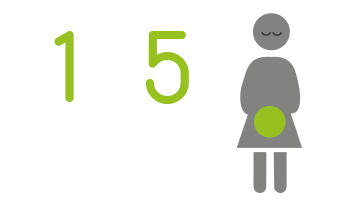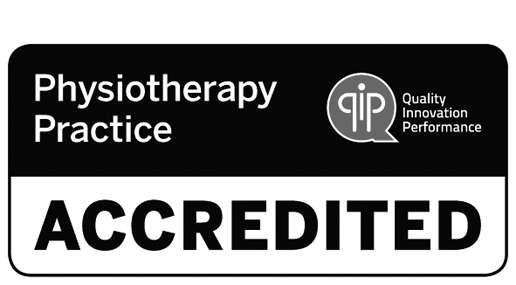Endometriosis & Adenomyosis
Do you have painful periods?
Does pelvic or abdominal pain stop you from doing things you enjoy, such as exercising, social activities, or intimacy?
Do you have to take time off school or work because of your period pain?
Endometriosis and adenomyosis affect 1 in 10 Australian women, and often have a significant impact on many aspects of the lives of those who experience it. While there is no cure for endometriosis or adenomyosis, symptoms can be well controlled.
To support you with your endometriosis or adenomyosis, it is recommended that you have a multidisciplinary team of health care professionals, involving a gynaecologist, GP and pelvic floor physiotherapist, and sometimes a pain physician, gastroenterologist or psychologist.
Physiotherapy treatment targets your whole body, to alleviate the symptoms and enable you to live a productive, active life. This includes many strategies which will set you up with good lifelong habits.
What are Endometriosis and Adenomyosis?
Endometriosis occurs when tissue similar to the lining of the uterus grows in other parts of your body. It is most commonly seen inside the pelvis, and can affect your uterus, bladder, bowel, ovaries, or fallopian tubes. During menstruation, this tissue also bleeds, which can cause pain, inflammation, scarring, and adhesions in your pelvis. There are different stages of the condition, and the severity of symptoms doesn't always correlate with the severity of the endometriosis. We know this because pain is not always relieved after removing the endometriosis through surgery, or hormonal treatment to suppress menstruation. Changes to the nervous system (brain, spinal cord and nerves) may explain why some people don't respond to traditional methods to treat their endometriosis-related pain.
Adenomyosis is another condition that leads to painful, heavy periods, pelvic pain and sexual pain. Adenomyosis occurs when cells similar to the lining of the uterus are also present in the muscular wall of the uterus. Similar to endometriosis, this tissue also bleeds during menstruation, causing small collections of blood in the uterine wall. We know that the nervous system can also become involved in the pain experience.
Common Symptoms:
Endometriosis or adenomyosis symptoms may be constant, or may fluctuate with your period.
Some examples of common symptoms experienced:
• Painful periods, or painful ovulation
• Painful sex
• Persistent pelvic and abdominal pain
• Pelvic and abdominal muscle tension
• Heavy menstrual bleeding
• Bladder or bowel problems
• Lower back, abdominal, thigh or leg pain
• Bloating, fatigue, mood changes
How We Can Help:
Our experienced Physiotherapists understand this complex problem and will work with you to improve your quality of life. We take a wholistic approach addressing all aspects that may be contributing to your pain.
Your physiotherapist will take a detailed history to work out what is causing your pain. Women with endometriosis and adenomyosis often have a variety of contributors to their pain, with a mix of both issues locally in the pelvis and centrally in the brain and nervous system. They will help you understand your pain and how your muscles, nerves, thoughts and feelings and the world around you are contributing. They will often focus on improving the function of your muscles and joints in and around your pelvis, calm down the sensitivity in your nervous system, and improve your overall health and wellbeing.
We work closely with you, your referring doctor and other health professionals to achieve your goals.
What To Expect:
Our caring physios are invested in your overall wellbeing, empowering you to live your best life. During your treatment with us you can expect:
• Time spent hearing and exploring your story, understanding your unique body, mind and lifestyle factors and establishing goals with you
• A thorough physical assessment, which may include an internal vaginal examination (if and when you are ready)
• A detailed explanation of what is causing your pain, and what we can do to help
• Design of a treatment program tailored to your individual needs and goals
• Development of a ‘pain management toolkit’ to give you strategies to help manage your pain during your period or flare ups of pain
• Exercises for your pelvic floor muscles
• Desensitisation exercises, massage techniques and / or stretches and strengthening exercises for your pelvis, back, abdomen or legs
• Treatment of bladder or bowel problems
• Education about intimacy, arousal and libido and how to integrate relaxation into an intimate setting
• Education about the science of pain, to help you understand the relationship between your pain, nervous system, and physical and emotional health
• Advice to help get you moving in a safe and comfortable way
• Advice on lifestyle factors including general exercise, sleep, diet and stress management
To learn more, you might be interested in our blog, Why Calming Down The Nervous System Can Help Endometriosis










